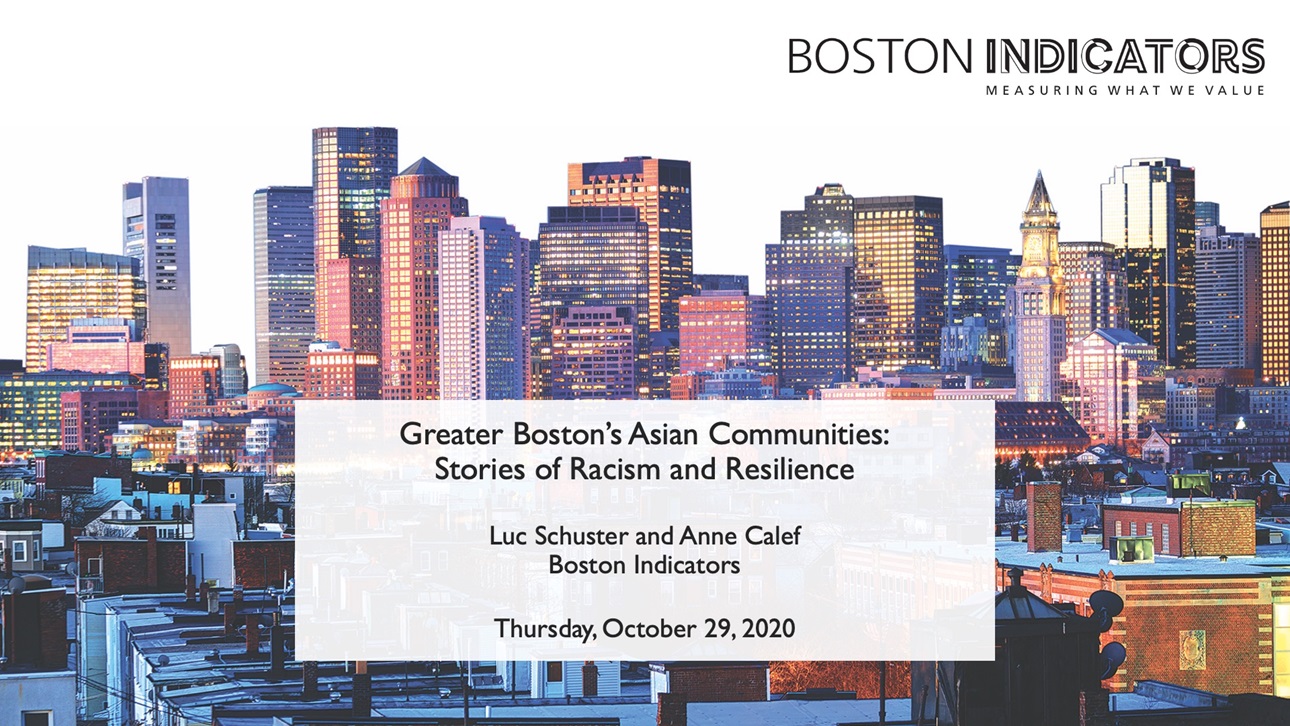Lee then introduced Luc Schuster and Anne Calef of Boston Indicators for an exploration of Asian demographic and economic data, highlighting the myriad differences in income, education, English proficiency and immigration journeys among the 29 nationalities lumped together as "Asian" in many demographic studies. Understanding the heterogeneity of the Asian/Pacific Islander community is critical to addressing many of the issues many Asians face in the COVID era, said Stephen Chan, Vice President for Strategy and Operations at the Boston Foundation, who called on philanthropy to markedly improve its investments in Asian communities.
Chan was then joined by Lisette Le, Executive Director, of VietAID, Bethany Li, who directs the Asian Outreach Project at Greater Boston Legal Services, and Angie Liou, the Executive Director of the Asian Community Development Corporation. They each shared their perspectives, highlighting many of the language- and immigration status-based obstacles that still need to be addressed if we are to truly address the needs of thousands of Asians in Greater Boston.
Liou cited the case of the Asian Emergency Fund, which was established in the weeks after COVID-19 swept through the region. Liou said that one surprising development for the Fund was that getting the money out to Asians in need was initially difficult. Liou said that for many, despite their needs, they had to overcome their fear of having their immigration status discovered, and understand that unlike some government programs, this was a program they could apply for regardless of their status.
The other panelists agreed about the need for improved language services, and a better understanding of what the Asian community really looks like. Le said the perception of Asians as a homogenous, "model minority" means Asians may be overlooked or have their challenges unrecognized. As one example, Li noted that despite estimates 30 percent of undocumented immigrants are Asian, even Asians don't see themselves in the undocumented immigrant narrative. That furthers the lack of access that holds back many Asians in need.
Liou said that improving access takes both a willingness to advocate and a willingness to look past the top-line numbers to really understand the data being used to measure "Asian" needs - data that might hide as much truth as it shows.
"Until we have equal access to systems and resources," she added. "We will have a lot of work to do."



